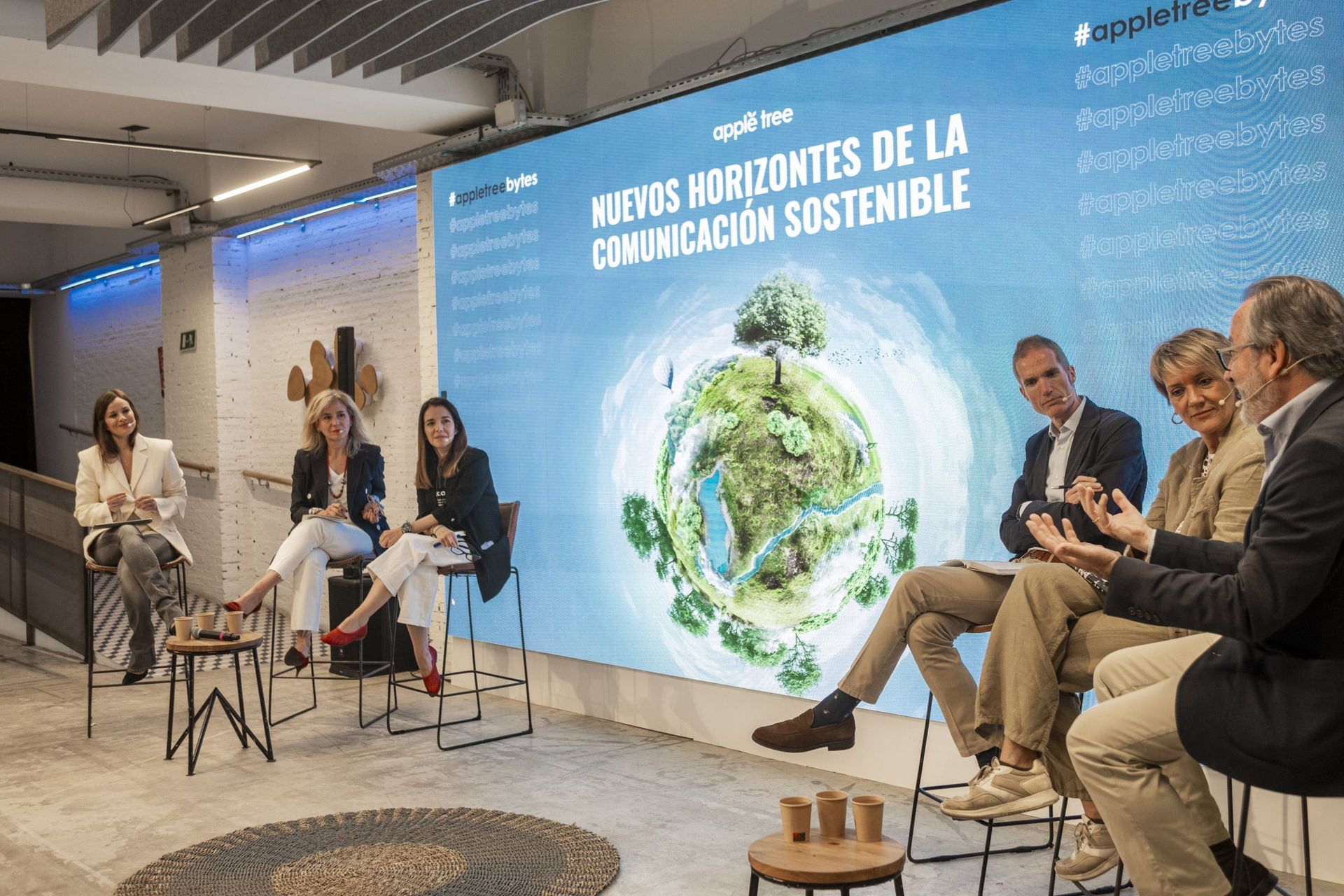Has the term sustainability been overused? How can greenwashing be combated? What challenges will the new European Commission regulations pose for communicating sustainable products and practices? These were some of the questions we tried to answer during the last edition of APPLE TREE BYTES, titled ‘New Horizons for Sustainable Communication’.
Communicating progress in sustainability has become a challenge for organizations and brands. In the latest edition of the European Communications Monitor, a study carried out every year by the European Communication Professionals Association (EUPRERA), Spanish Dircoms stated that the third challenge they face within their organizations is managing issues related to sustainable development and corporate social responsibility (34.5%).
The advent of ESG criteria in the corporate sphere and a greater demand from consumers for so-called ‘sustainable’ products have been the main cause of this movement in favor of sustainability, which has not always responded to good practices. As a result, greenwashing has increasingly become a practice denounced by different social agents. Now, the European Commission has decided to put its own house in order with legislation that promises to put an end to this practice.
During the meeting that APPLE TREE organized with different business, marketing and communication professionals, one thing became clear: companies cannot remain silent in the face of the challenges of sustainable communication and have to adapt to this new environment. Only those that do it well will be recognized as environmentally and socially sustainable.
In this sense, Belén Viloria, General Manager of B Corp, highlighted during the meeting: ‘The main challenge for companies to communicate their sustainability is undoubtedly to be coherent. If they are coherent and really communicate with authenticity, with courage, with rigour, and with determination, then they will be communicating their sustainability well’.
The B Corp movement is carrying out a campaign with its companies to highlight sustainability within the business world, demonstrating how small gestures can also change the world from within organizations. The campaign ‘Se escribe con B’, reflects this spirit of change from the companies themselves and encourages society to join in. Belén Viloria, CEO of B Corp, points out, ‘The main challenge for companies to communicate their sustainability is undoubtedly to be coherent. If they are coherent and really communicate with authenticity, with courage, with rigour, and with determination, then they will be communicating their sustainability well’.
From a societal perspective, Ecoembes is working to promote environmental awareness, in which communication and marketing play a crucial role. Nieves Rey, Director of Marketing and Communication at Ecoembes, explains what she and her organization believe are the keys to promoting a sustainable spirit in society: ‘The main challenge is to connect, to connect with our audiences, with ordinary people, so that they really perceive the environmental work we do as companies. And also to inspire those who follow us in these small habits, such as recycling, saving water, electricity…’.
An increasingly conscious consumer
The increased interest among consumers in more environmentally friendly lifestyles has attracted the marketing world’s attention, with studies showing a correlation between the designation of a sustainable product and sales. For instance, research by the consultancy, McKinsey and Nielsen, which looked at whether the labelling of ‘sustainable’ products really does have an effect on consumer purchasing, found that products labelled ‘eco’ saw a 28% increase grew in sales compared to 20% for products without such claims.
It is clear, therefore, that the predisposition to buy products labelled as sustainable is real. However, what this designation consists of and what it refers to is sometimes unclear. This is where the defense of consumers’ interests and information should prevail. José Armando Tellado, CEO of CAPSA, points out, ‘I think the main challenge is to raise awareness, sensitize, and inform. At the end of the day, what it comes down to is that they (consumers) are the ones who demand information from companies so that they can make informed choices.


